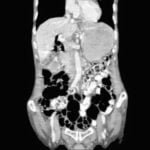
Treating Cirrhosis of Liver .
Cirrhosis is a chronic disease, and patients with cirrhosis require ongoing medical care with a physician . There is progressive decline in liver cell function and patients are prone to develop ascites , altered sensorium and hematemesis( Blood with vomiting )

Medical care for patients with cirrhosis has several aims:
(1) treating the underlying cause of liver disease when possible,
(2) preventing cirrhosis-related complications, and
(3) treating the symptoms of cirrhosis.
Whenever possible, the underlying cause of cirrhosis should be treated. Some conditions improve with medial therapy and treatment can improve or delay worsening of liver function. Patients with cirrhosis should not drink alcohol.
Dietary salt restriction and diuretic medications (commonly known as “water pills”) are prescribed for the control of ascites and edema. Patients with cirrhosis should restrict salt intake to 2 gm/day .In some cases, a small needle may be inserted into the abdominal cavity under local anesthesia to drain ascites fluid, a procedure known as a paracentesis.
Patients with ascites who have experienced prior episodes of infection in the fluid (spontaneous bacterial peritonitis) or who have a high risk of infection (based on laboratory analysis of the fluid) are given long-term oral antibiotic medication to prevent future episodes of infection.
Various medications may be prescribed for patients with hepatic encephalopathy. These include lactulose and/or certain types of oral antibiotics.
Patients should avoid constipation and take a balanced diet.
Vaccinate :Typically, patients with cirrhosis should receive a yearly flu (influenza) vaccine and the pneumonia (pneumococcal) vaccine. Your doctor may test you for hepatitis A and hepatitis B and vaccinate if not immune.
Screening for Varices Patients with cirrhosis should undergo UGI endoscopy to look for varices . If large patient may need to be put on medication( Propanolol )to prevent variceal bleed or doctor may advise their ligation (EVL).
Screening for Liver cancer:These patients are at increased risk of developing primary liver cancer, known as hepatocellular carcinoma. In patients with hepatitis C infection it is approximately 3-4% each year. Successful treatment for liver cancer depends on early detection. Liver cancers frequently do not cause any symptoms when they are small and treatment options may be limited by the time symptoms develop. Your doctor may recommend an ultrasound, CT scan or MRI of your liver at a regular interval, typically every 6 months, to detect liver tumors. A blood test called alpha-fetoprotein (AFP) may also be used to help detect tumors, however, it is not reliable enough by itself to replace the need for periodic imaging testing.
Reference
Smith A, Baumgartner K, Bositis C. Cirrhosis: Diagnosis and Management. Am Fam Physician. 2019 Dec 15;100(12):759-770. PMID: 31845776.
Join the mailing list!
Get the latest articles delivered right to your inbox!

